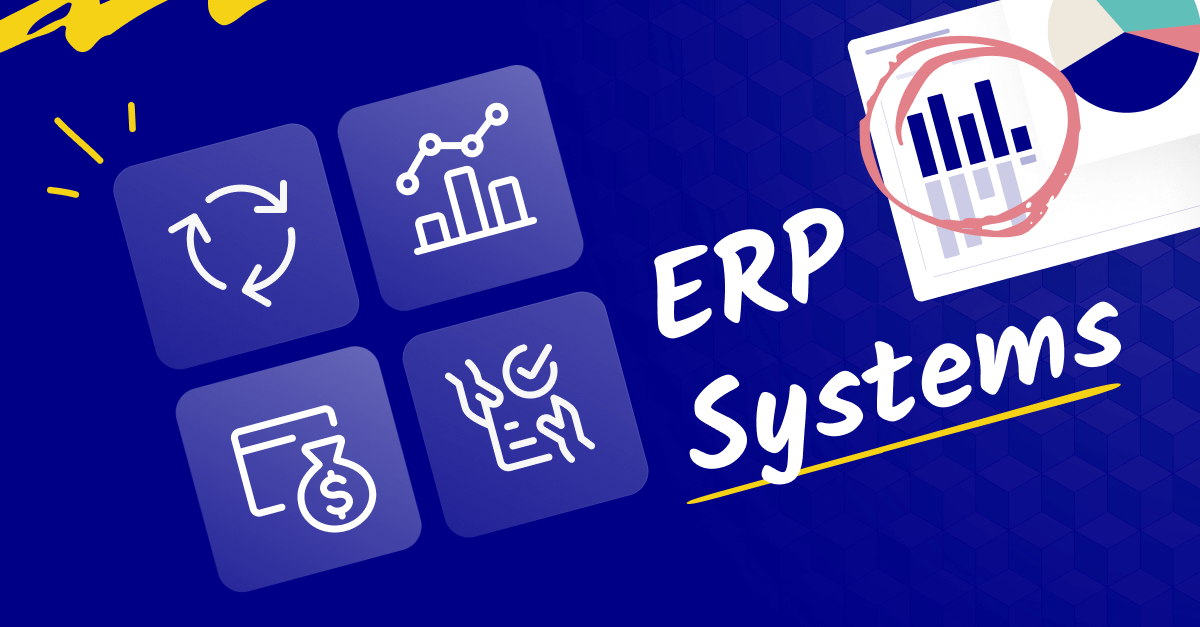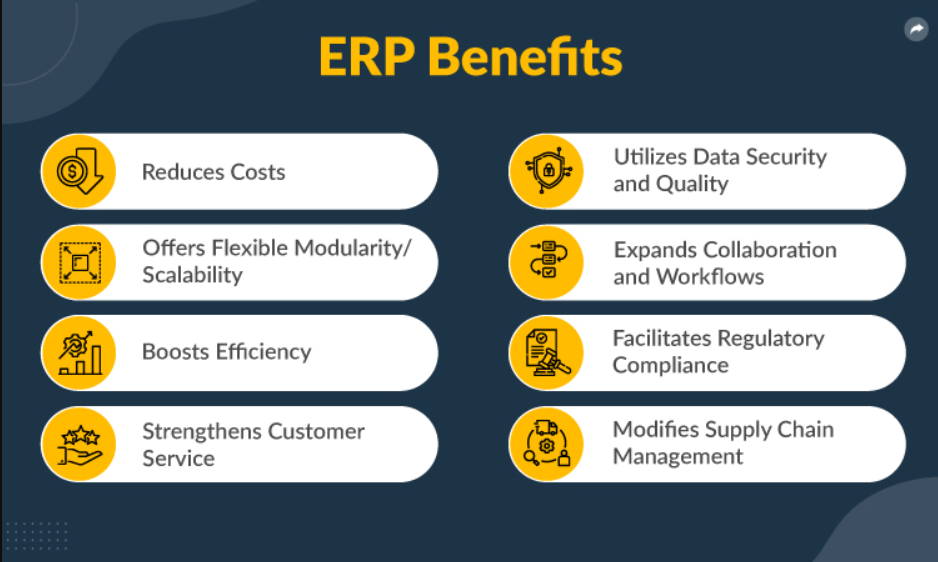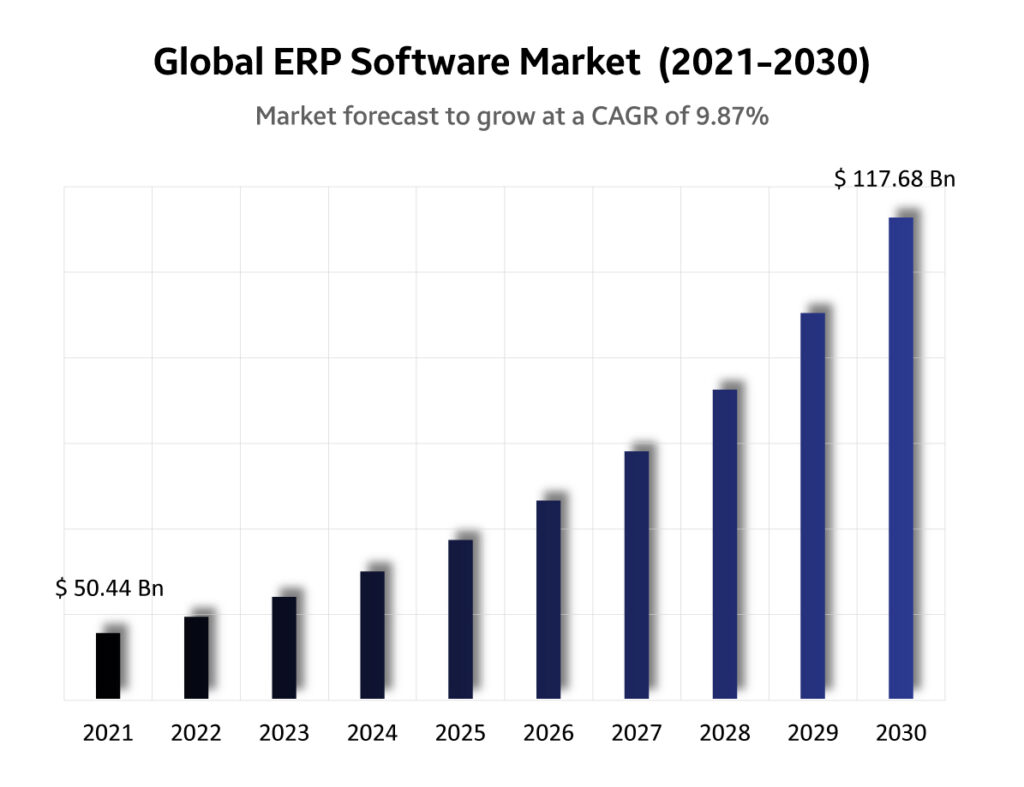
Running a business, especially in the fast-paced world of logistics and transportation, can feel like a constant battle. You are perpetually juggling multiple tasks at once, from managing finances and inventory to ensuring excellent customer service. The complexity can quickly become overwhelming and a lackadaisical approach can lead to chaos. An ERP software can resolve this issue. ERP systems streamline your operations by integrating all critical business functions into a single platform, making processes more efficient and less prone to errors.
In this blog, we take a look at how ERP software can simplify your logistics business, saving you both time and money.
What is ERP?
During the initial stages, a company might have separate systems in place for financials and human resources. However, as the company grows, siloed systems no longer cut it. This is where ERP software comes in. Enterprise Resource Planning (ERP) is a software that integrates several business processes on one platform. This eliminates the need for businesses to invest in separate, complex systems for key business functions like finance, human resources, supply chain, and manufacturing.
Key Benefits of ERP Software

ERP software can act as a unified platform for your business. But that is not the extent of its benefits. The true power of ERP for logistics goes beyond simply organizing data. Let’s take a detailed look at these benefits:
1. Automation
Traditional methods relied on manpower to painstakingly collect and organize data. However manual tasks take up time and increase the risk of errors. ERP software automates mundane tasks, allowing your team to work on other important tasks. Repetitive processes like order processing, inventory management, and even route planning can thus be automated to enhance the productivity of your workforce.
2. Data and Analytics
The integration of various departments under ERP software naturally means that you get all the latest data in real-time. This will provide you with valuable insights on whichever KPI you want. You can generate reports, identify problems, and increase profitability with these insights. Moreover, ERP facilitates advanced business processes such as forecasting, enabling informed decision-making with comprehensive logistics management software.
3. Improved Customer Service
The customer is king no matter what industry you work in. Great customer service can help your business stand out in this competitive landscape. An ERP software gathers all customer data in one place. This means that the system has access to a customer’s complete order history, which can aid in personalizing services. ERP also speeds up order processing and aids in route planning. This will prevent delays, or any other order fulfillment issues. All this will lead to a positive experience that will increase customer loyalty.
4. Collaboration
As a business expands, there is an increased risk of communication gaps creeping in. The only solution to this issue is to improve collaboration. That is exactly what an ERP system does. The integrated platform facilitates communication and every employee gets a clear picture of the workings of your business.
5. Reduced Operational Costs
Having a separate system for each department can increase operational costs and decrease efficiency. An ERP eliminates the need for businesses to invest in separate, complex systems for key business functions. This will reduce the money you expend in multiple licenses and admin resources.
ERP Systems Vs Siloed Systems
A business cannot thrive solely through traditional methods. Operational excellence can only be achieved through the integration of a robust ERP system. We have put together this table to better showcase the glaring gap between companies that make use of ERP systems and those that still use siloed systems.
| ERP Systems | Siloed Systems |
|---|---|
| Automated workflows. | Manual processes. |
| Integrated data across departments leading to real-time insights. | Siloed data leads to limited visibility. |
| Streamlined order processing resulting in faster fulfilment times. | Order processing is prone to errors and slow order fulfillment. |
| Accurate inventory levels lead to optimized stock levels. | Inefficient stock control leads to stockouts or overstocking. |
| Personalized customer service. | Limited access to customer data leads to inefficient personalization. |
| Real-time financial reports and automated accounting processes. | Inaccuracies in financial reports and time-consuming accounting process. |
| Scalable system. | Limited scalability and flexibility. |
| Robust security features like access control and data encryption. | Potential security vulnerabilities. |
| Enhanced collaboration between departments. | Communication gaps between departments. |
The Verdict – ERP systems emerge as the clear winner boasting increased efficiency, reduced errors, better resource allocation, and improved customer service.

FAQs
1. How does an ERP system work?
An ERP system functions as a central control panel or database that connects various business processes. Different departments of your business like finance, accounting, human resources, supply chain, and manufacturing are integrated into one platform. This allows you to run your organization smoothly.
2. What are the benefits of an ERP system?
An ERP system offers your business various benefits like automation, real-time insights, access to useful data, improved customer service, enhanced collaboration, and reduced operational costs.
3. Can an ERP system be used for small businesses?
Yes, an ERP system can provide significant advantages for small businesses by improving efficiency, data management, customer service, and collaboration. Another benefit to consider is the scalability an ERP system offers.
4. Which industries can benefit from an ERP system?
Most ERP systems are versatile enough to be tailored to fit various industries. Some industries that can benefit from an ERP system include manufacturing, retail, e-commerce, healthcare, hospitality, food and beverage, logistics, and education.
5. How does an ERP system improve customer service?
An ERP software gathers all customer data in one place, providing a comprehensive view of customer information. This centralization streamlines order processing and enhances inventory management. As a result, businesses can offer highly personalized interactions, ultimately improving customer satisfaction.
Conclusion
In the logistics and transportation industry, where every minute counts, efficiency is key. ERP software like Fetche emerges as the solution, offering a unified platform to manage finances, inventory, and customer interactions. With automation, real-time insights, and cost-saving features, it streamlines operations and enhances customer satisfaction. Invest in Fetche today and transform your logistics operations from chaos to clarity.
